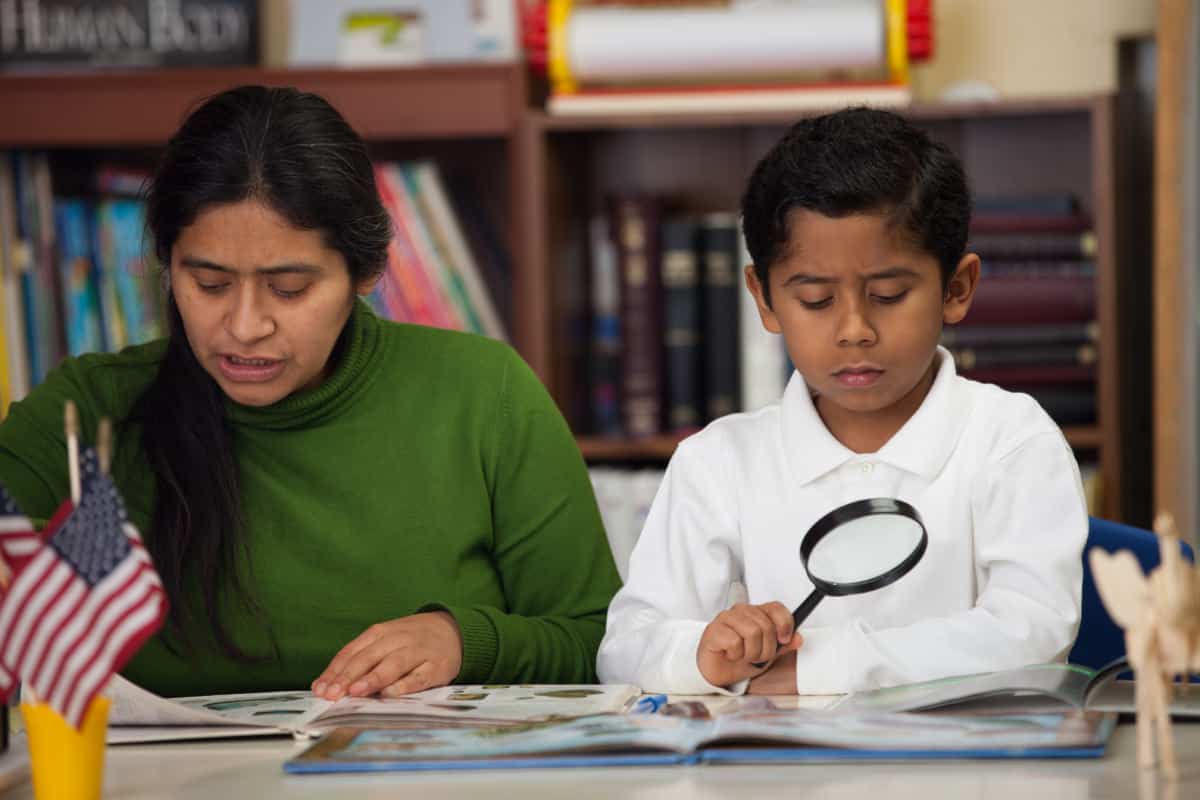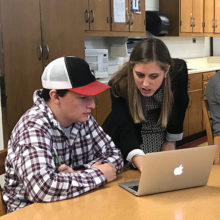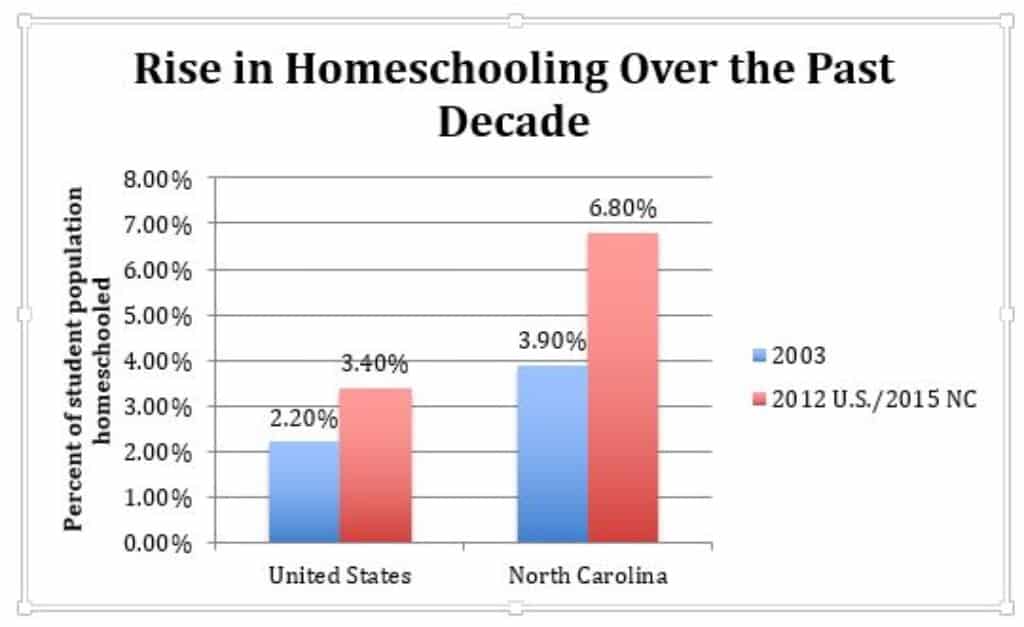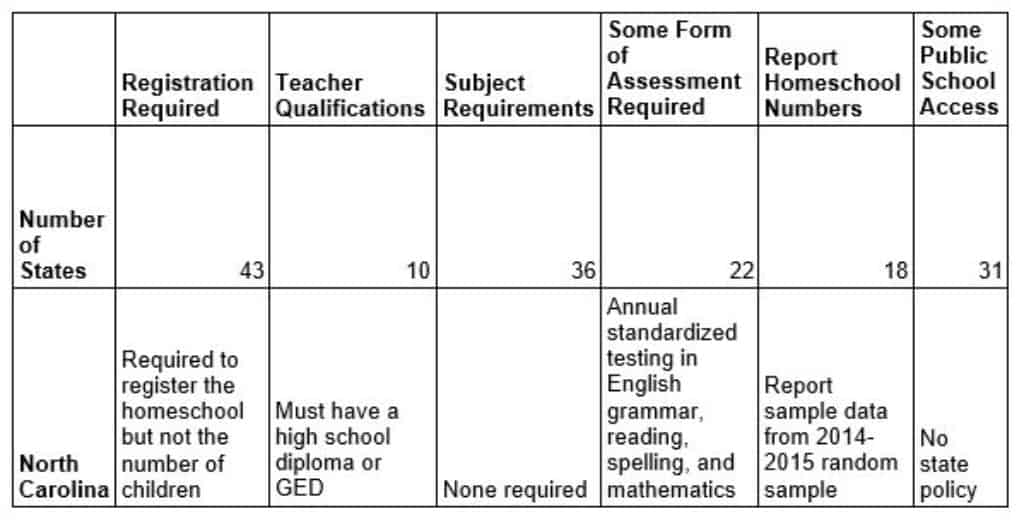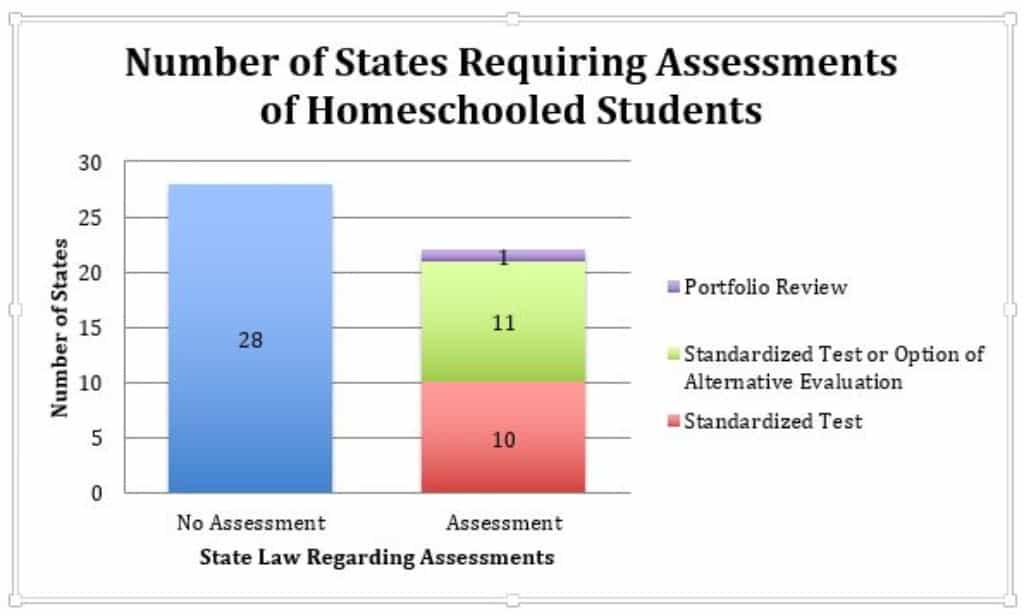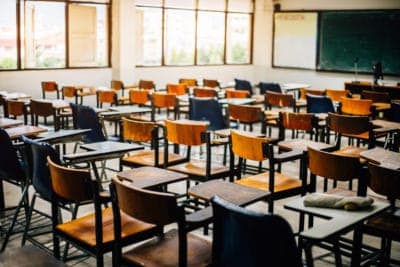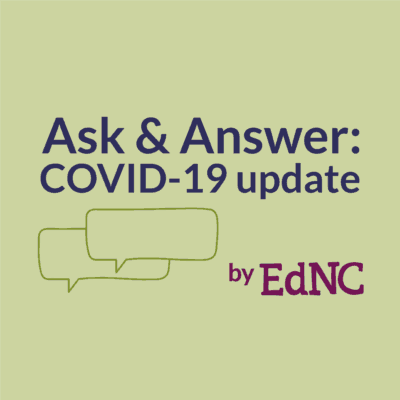Homeschooling has grown faster in North Carolina than in the U.S.
According to the National Center for Education Statistics, the number of homeschooled students in the U.S. has increased from 1,096,000 in 2003 to 1,773,000 in 2012 – an increase from 2.2 percent of the student population to 3.4 percent.1
North Carolina’s growth in homeschooling has outpaced the national growth, making it home to one of the largest state populations of homeschoolers in the country. In the 2003-04 school year, the Division of Non-Public Education reported 28,746 homeschools and an estimated 54,501 homeschooled students. In the 2014-15 school year, those numbers jumped to 67,804 homeschools and 106,853 homeschooled students, representing an increase from 3.9 percent of students homeschooled in 2004 to 6.8 percent in 2015.2
Given this dramatic increase, one might think North Carolina has more lenient homeschool laws than other states. However, after researching each state’s home school laws, North Carolina falls somewhere in the middle of the spectrum in terms of leniency and ease of homeschooling. The table below summarizes North Carolina’s homeschool laws relative to other states.
Homeschool Laws in the U.S. and North Carolina Compared:
Different definitions of homeschools create different regulations
Homeschooling is defined differently in most states. Most have homeschool statutes stating the qualifications to be considered a homeschool. In some states (Massachusetts, for example), homeschools are considered private schools and regulated as such. In California, homeschooling is not legally recognized, but parents can homeschool their children in four ways: 1) operate as a private school, 2) enroll in a private school satellite program, 3) private tutoring by a state-certified tutor, or 4) enroll in an independent study program using the public school curriculum. Each option is regulated differently.3
North Carolina defines a homeschool as, “a nonpublic school consisting of the children of not more than two families or households, where the parents or legal guardians or members of either household determine the scope and sequence of academic instruction, provide academic instruction, and determine additional sources of academic instruction.”4 Homeschools can register as religious or independent schools. In 2014-15, 61 percent of homeschools were registered as religious and 39 percent as independent.5
North Carolina and 42 other states require homeschools to register
The majority of states (43) require homeschools to register with either the state department of education or the local school district. Registration ensures that the state knows which students are excused from compulsory attendance laws. Alaska, Idaho, Illinois, Michigan, New Jersey, and Texas, however, do not require any registration. While these states may advise parents to register, they are not legally required to do so.
North Carolina law requires parents to register their homeschool with the Division of Non-Public Education (DNPE). Parents must provide the name and address of the school and the school’s owner and chief administrator, but they do not have to report the names, ages, or any other information on the homeschooled students.6
North Carolina is 1 of 10 states that has parent qualifications to homeschool
Only 10 states require parents to have qualifications in order to homeschool. The majority of these states require either a high school diploma or GED, including North Carolina. Both Ohio and North Dakota allow parents without a high school diploma or GED to homeschool their children under the supervision of either a certified teacher (North Dakota) or college graduate (Ohio) until students demonstrate proficiency. Washington requires parents to be either supervised by a “certificated person,” have either 45 college quarter credits or 30 semester credits, have completed a home-based education course, or “deemed sufficiently qualified” by the local superintendent.7
36 states require certain subjects to be taught; North Carolina does not
Most states (36) require homeschools to teach certain subjects. Some states outline specific subjects for different grade levels, while others require homeschools to teach the same subjects as those taught in public schools. Pennsylvania and New York have the most stringent subject requirements. New York, for example, specifies 13 different subjects to be taught in grades one through six, including bilingual education, and lists the units of courses required for grades seven through twelve (i.e. four units of English, two units of physical education).8
North Carolina is one of 14 states that do not have subject requirements. However, because North Carolina does require annual testing in certain subjects, homeschools are advised to teach that material.
Access to public school courses and extracurricular activities split among states
Thirty-one states permit some form of public school access for homeschooled students. Of these, 16 states only allow homeschooled students to participate in interscholastic and/or extracurricular activities. Fifteen states also allow dual enrollment in public school classes.
The remaining 19 states have either ruled that homeschooled students cannot participate in extracurricular activities and/or classes, or they have no specific state law on the issue and defer to school districts. North Carolina is one of nine states that allow the local education agencies (or school boards) to determine if homeschooled students can participate in public school classes and extracurricular activities.9
Six states (California, Delaware, Maryland, Missouri, New York, and Oklahoma) prohibit homeschooled students from participating in classes or extracurricular activities. Connecticut, Georgia, Kansas, and Mississippi have no state laws or court cases that clarify their position on public school access for homeschooled students.
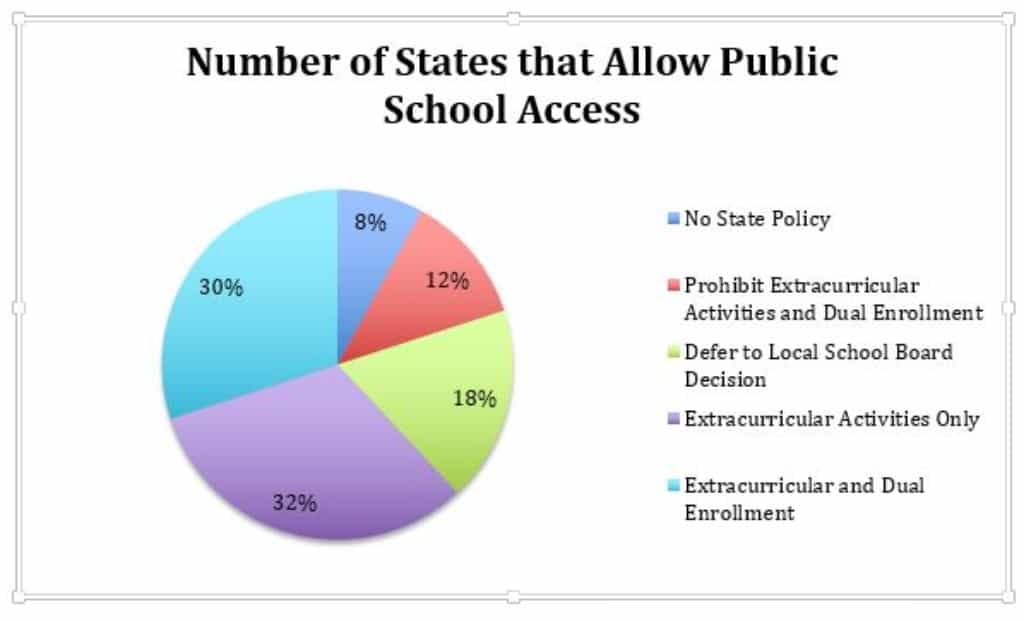
North Carolina joins roughly half of states in requiring assessments
State laws on assessing homeschooled students fall into three categories: 1) no assessment required, 2) standardized testing required, or 3) either standardized testing or an alternative form of assessment required. A slight majority of states (28) fall into the first category. Of the remaining 22 states, 10 states require standardized testing either annually or at certain grade levels, including Georgia, Hawaii, Minnesota, North Carolina, North Dakota, Oregon, Pennsylvania, South Carolina, South Dakota, and Tennessee. Eleven states (Colorado, Florida, Maine, New Hampshire, New York, Ohio, Rhode Island, Vermont, Virginia, Washington, and West Virginia) require either standardized testing or some form of alternative evaluation option, such as the option to have the child evaluated by a state certified teacher. Maryland is the only state to require an annual portfolio review by the local superintendent to determine yearly progress.10
States also differ in their approach to dealing with these evaluations. Some states put homeschools on probation if a student does not show adequate progress, defined differently in each state. Others, such as New Hampshire, specifically state that assessment results may not be used to close a homeschool. North Carolina requires annual standardized testing in English, grammar, reading, spelling, and mathematics but only requires parents to keep those results for one year if the state wishes to inspect them.11
North Carolina is 1 of 18 states that reports homeschool numbers
Only 18 states publicly report homeschool numbers on their state education websites. Other states may collect and report homeschool numbers on request but do not report this data.
Prior to 1996, North Carolina reported both homeschool numbers and the number of homeschooled students in the state. After the 1995-96 school year, however, reports only list the number of homeschools and an estimate for the number of homeschooled children in the state. These estimates are based on random sampling of the registered homeschools, and thus it is unclear if this data represents the true number of homeschooled students in the state.
For more information, see the 2015 50-State Review of homeschool laws from the Education Commission of the States. State research summary is an excel spreadsheet of every state’s homeschool laws and sources compiled by the author.
